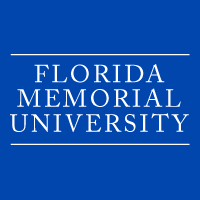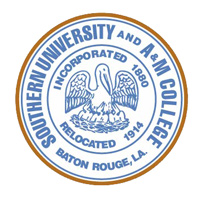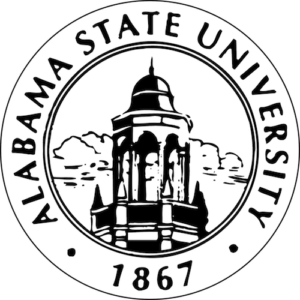Here is this week’s news of grants or gifts to historically Black colleges and universities or for programs of particular interest to African Americans in higher education.
 The School of Education at historically Black Florida Memorial University in Miami Gardens has received a $1.2 million grant from the U.S. Department of Education’s Office of Special Education Programs. The grant will provide funds to add 20 well-prepared interventionists to effectively collaborate with 12 school guidance counselors prepared by Florida International University to support students with severe learning and behavioral challenges. Currently, there are very few school instructors in the region that are properly trained to teach and support students with behavioral or learning disabilities. Florida Memorial University’s new program, “Project SCISSORS,” aims to increase skilled school personnel and educational outcomes for this targeted population.
The School of Education at historically Black Florida Memorial University in Miami Gardens has received a $1.2 million grant from the U.S. Department of Education’s Office of Special Education Programs. The grant will provide funds to add 20 well-prepared interventionists to effectively collaborate with 12 school guidance counselors prepared by Florida International University to support students with severe learning and behavioral challenges. Currently, there are very few school instructors in the region that are properly trained to teach and support students with behavioral or learning disabilities. Florida Memorial University’s new program, “Project SCISSORS,” aims to increase skilled school personnel and educational outcomes for this targeted population.
 Historically Black Texas Southern University in Houston has received a $110,000 donation from the family of Alvin L. Henry to establish the Alfreda Henry Endowed Scholarship. After graduating from the Thurgood Marshall School of Law at Texas Southern University, Henry joined the Houston City Attorney’s Office, making him the first African American to serve in a professional capacity at City Hall. He went on to become a lifelong supporter of his alma mater. The new endowment will provide financial support to university’s students who meet the scholarship’s academic requirements.
Historically Black Texas Southern University in Houston has received a $110,000 donation from the family of Alvin L. Henry to establish the Alfreda Henry Endowed Scholarship. After graduating from the Thurgood Marshall School of Law at Texas Southern University, Henry joined the Houston City Attorney’s Office, making him the first African American to serve in a professional capacity at City Hall. He went on to become a lifelong supporter of his alma mater. The new endowment will provide financial support to university’s students who meet the scholarship’s academic requirements.
 A group of eight universities, led by Northwestern University in Evanston, Illinois, has received a $3 million grant from the National Science Foundation to develop and implement a program that aims to change the way undergraduate STEM courses are taught on a national scale. The Inclusive Learning and Teaching in Undergraduate STEM Instruction project will train current and future university faculty in teaching methods that are more inclusive to diverse populations.
A group of eight universities, led by Northwestern University in Evanston, Illinois, has received a $3 million grant from the National Science Foundation to develop and implement a program that aims to change the way undergraduate STEM courses are taught on a national scale. The Inclusive Learning and Teaching in Undergraduate STEM Instruction project will train current and future university faculty in teaching methods that are more inclusive to diverse populations.
 The Speech Pathology and Audiology Program at historically Black South Carolina State University has received a $500,000 grant from the U.S. Department of Agriculture’s National Institute of Food and Agriculture. The funds will be used to conduct an extensive research project that aims to educate rural farmers in South Carolina about the risks that are associated with loud noises on their farms. The study expects to illustrate a strong correlation between high noise levels that farmers are exposed to, and the hearing loss that occurs as a result of this phenomenon. The program hopes to promote the use of hearing protection in hopes of making agricultural work more conducive to a healthy lifestyle. The project will be led by assistant professor of audiology Dr. Demarcus Bush.
The Speech Pathology and Audiology Program at historically Black South Carolina State University has received a $500,000 grant from the U.S. Department of Agriculture’s National Institute of Food and Agriculture. The funds will be used to conduct an extensive research project that aims to educate rural farmers in South Carolina about the risks that are associated with loud noises on their farms. The study expects to illustrate a strong correlation between high noise levels that farmers are exposed to, and the hearing loss that occurs as a result of this phenomenon. The program hopes to promote the use of hearing protection in hopes of making agricultural work more conducive to a healthy lifestyle. The project will be led by assistant professor of audiology Dr. Demarcus Bush.
 The College of Sciences and Engineering at historically Black Southern University in Baton Rouge, Louisiana, has received a $749,829 grant from the U.S. Department of Education to help students succeed in mathematics. The project, “Pathways for Advancing Student Success,” will implement a comprehensive improvement plan to increase the first-time passing rate in foundational mathematics courses and enhance mathematics instruction at the university in effort to improve retention rates among STEM students. Additionally, the college will implement an early warning system to identify and support at-risk students, strengthen tutoring services, train faculty members in collaborative teaching and learning strategies, and provide a six-week faculty course in redesign and curriculum training.
The College of Sciences and Engineering at historically Black Southern University in Baton Rouge, Louisiana, has received a $749,829 grant from the U.S. Department of Education to help students succeed in mathematics. The project, “Pathways for Advancing Student Success,” will implement a comprehensive improvement plan to increase the first-time passing rate in foundational mathematics courses and enhance mathematics instruction at the university in effort to improve retention rates among STEM students. Additionally, the college will implement an early warning system to identify and support at-risk students, strengthen tutoring services, train faculty members in collaborative teaching and learning strategies, and provide a six-week faculty course in redesign and curriculum training.
 Historically Black Alabama State University has received a $350,000 grant from the National Science Foundation to conduct bypass graft research for vascular tissue regeneration. The project will focus on understanding the processes and interactions of low-temperature plasmas and translating that knowledge to develop new technologies in the areas of aerospace, manufacturing, agriculture, food safety, and medicine.
Historically Black Alabama State University has received a $350,000 grant from the National Science Foundation to conduct bypass graft research for vascular tissue regeneration. The project will focus on understanding the processes and interactions of low-temperature plasmas and translating that knowledge to develop new technologies in the areas of aerospace, manufacturing, agriculture, food safety, and medicine.
 Morehouse College in Atlanta has received a $1.5 million grant from the National Science Foundation to help historically Black colleges and universities attract new STEM majors by enhancing programs and encouraging students to see themselves as future scientists. The research project will focus on how the formation of a scientific identity in students builds their confidence and motivates them to succeed and graduate with STEM degrees. Dr. Lycurgus Muldrow, executive director of the HBCU Identity Research Center at Morehouse, will lead the study. Additionally, the researchers will also research and disseminate information involving mainstream education reform in STEM areas and other disciplines, as well as promote the academic value of a HBCU education.
Morehouse College in Atlanta has received a $1.5 million grant from the National Science Foundation to help historically Black colleges and universities attract new STEM majors by enhancing programs and encouraging students to see themselves as future scientists. The research project will focus on how the formation of a scientific identity in students builds their confidence and motivates them to succeed and graduate with STEM degrees. Dr. Lycurgus Muldrow, executive director of the HBCU Identity Research Center at Morehouse, will lead the study. Additionally, the researchers will also research and disseminate information involving mainstream education reform in STEM areas and other disciplines, as well as promote the academic value of a HBCU education.












